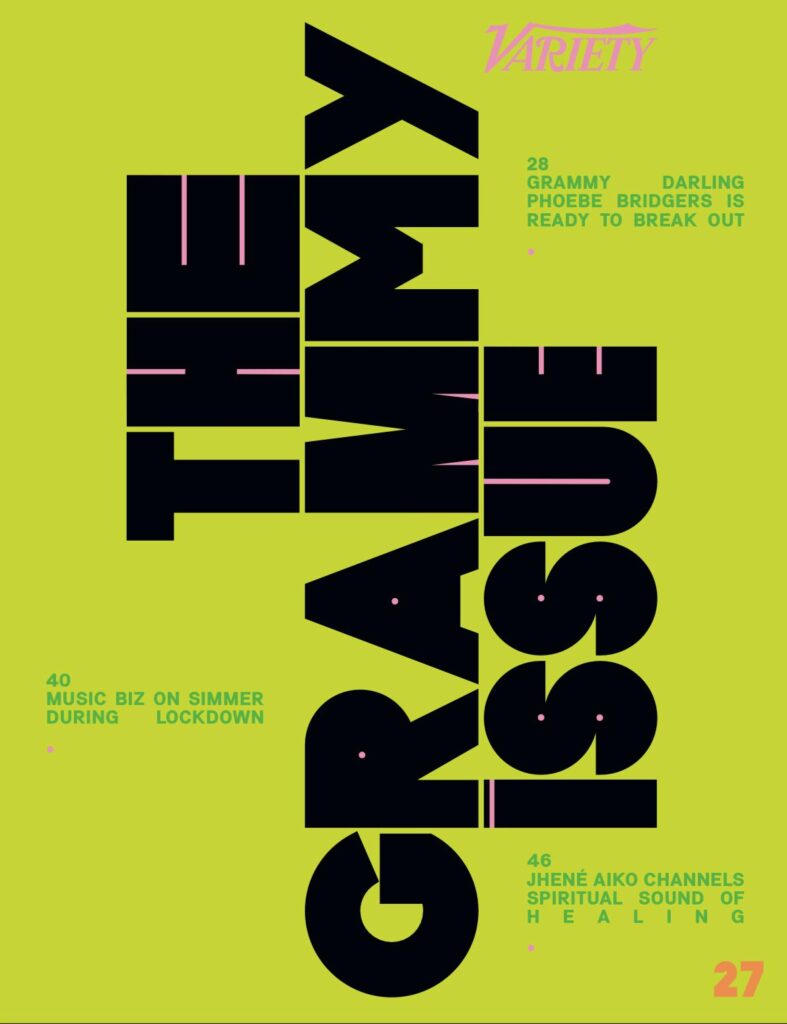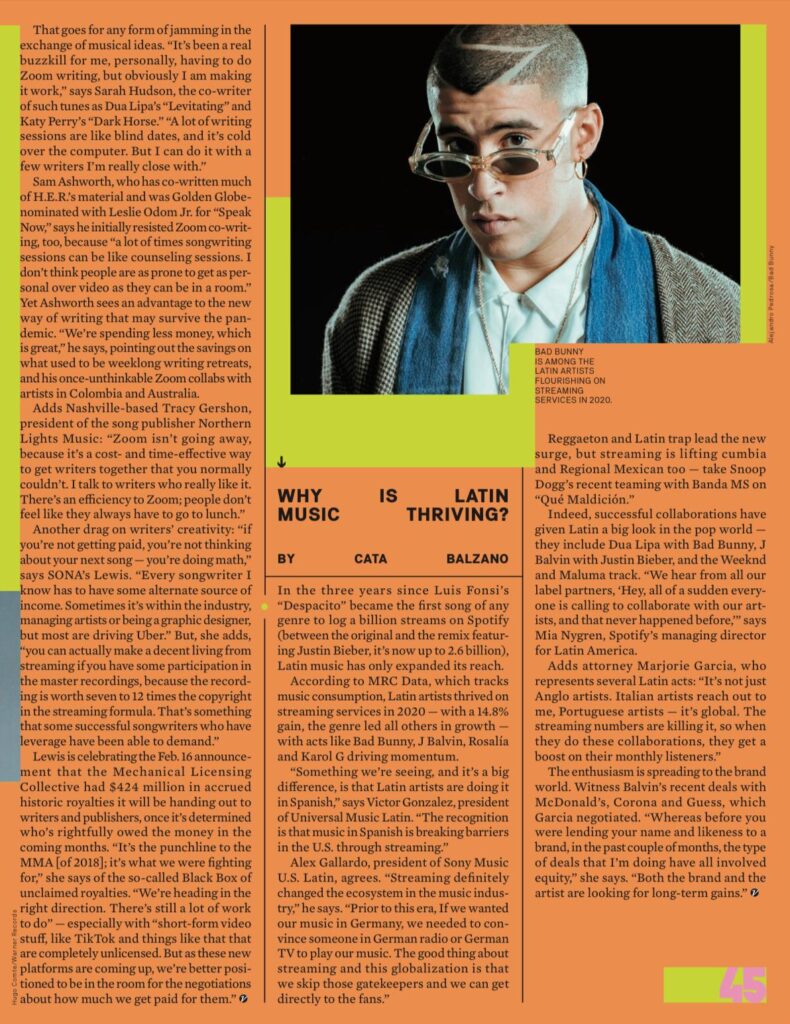
Why is Latin music thriving?
In the three years since Luis Fonsi’s “Despacito” became the first song of any genre to log a billion streams on Spotify (between the original and the remix featuring Justin Bieber, it’s now up to 2.6 billion), Latin music has only expanded its reach.
According to MRC Data, which tracks music consumption, Latin artists thrived on streaming services in 2020 — with a 14.8% gain, the genre led all others in growth — with acts like Bad Bunny, J Balvin, Rosalía and Karol G driving momentum.
“Something we’re seeing, and it’s a big difference, is that Latin artists are doing it in Spanish,” says Victor Gonzalez, president of Universal Music Latin. “The recognition is that music in Spanish is breaking barriers in the U.S. through streaming.”
Alex Gallardo, president of Sony Music U.S. Latin, agrees. “Streaming definitely changed the ecosystem in the music industry,” he says. “Prior to this era, If we wanted our music in Germany, we needed to convince someone in German radio or German TV to play our music. The good thing about streaming and this globalization is that we skip those gatekeepers and we can get directly to the fans.”
Reggaeton and Latin trap lead the new surge, but streaming is lifting cumbia and Regional Mexican too — take Snoop Dogg’s recent teaming with Banda MS on “Qué Maldición.”
Indeed, successful collaborations have given Latin a big look in the pop world — they include Dua Lipa with Bad Bunny, J Balvin with Justin Bieber, and the Weeknd and Maluma track. “We hear from all our label partners, ‘Hey, all of a sudden everyone is calling to collaborate with our artists, and that never happened before,’” says Mia Nygren, Spotify’s managing director for Latin America.
Adds attorney Marjorie Garcia, who represents several Latin acts: “It’s not just Anglo artists. Italian artists reach out to me, Portuguese artists — it’s global. The streaming numbers are killing it, so when they do these collaborations, they get a boost on their monthly listeners.”
The enthusiasm is spreading to the brand world. Witness Balvin’s recent deals with McDonald’s, Corona and Guess, which Garcia negotiated. “Whereas before you were lending your name and likeness to a brand, in the past couple of months, the type of deals that I’m doing have all involved equity,” she says. “Both the brand and the artist are looking for long-term gains.” —Cata Balzano






